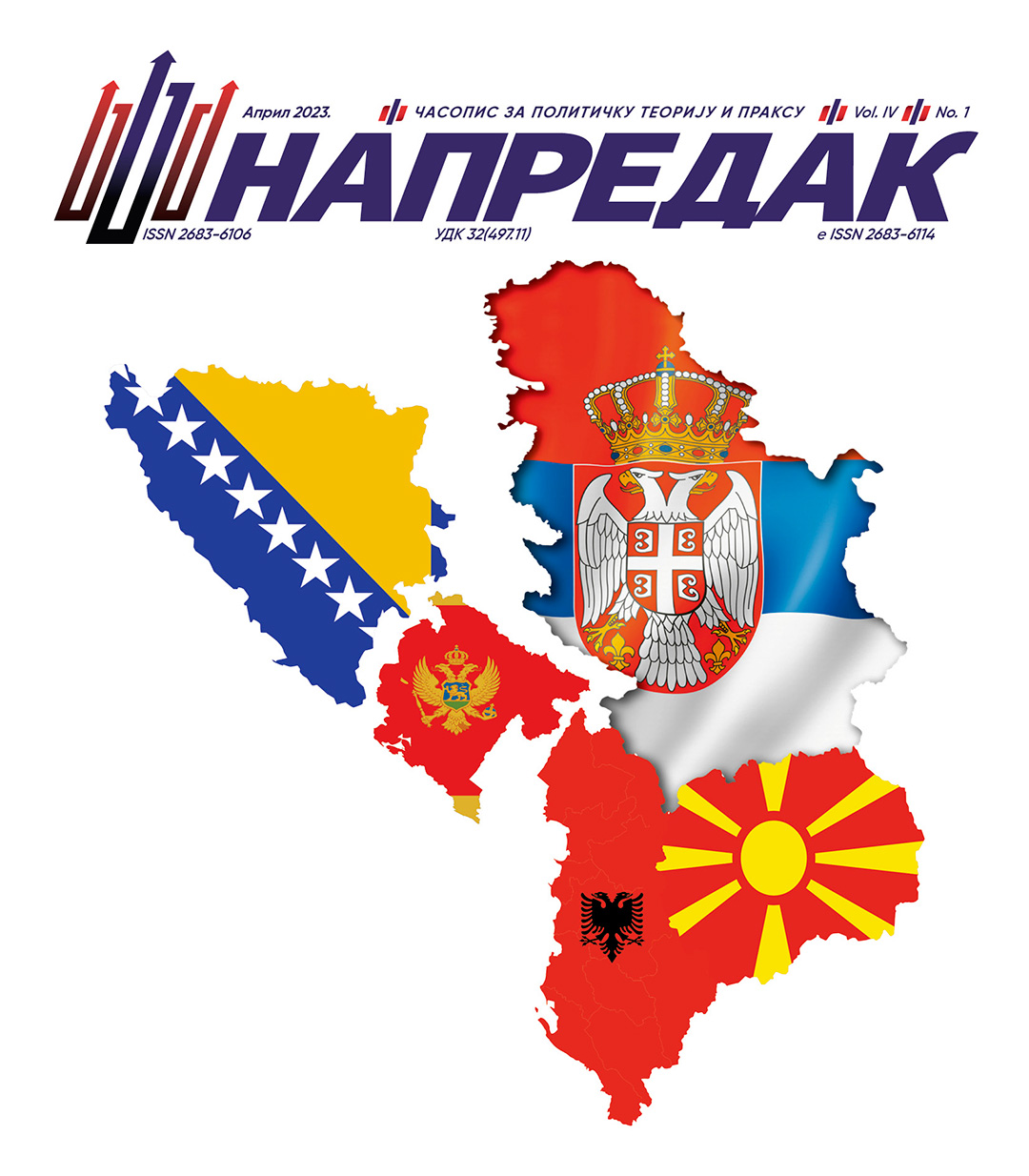Ставови младих у Републици Српској о браку, породици и родитељству
Sažetak
Предмет овог рада јесу ставови студентске популације у Републици Српској о браку, породици и родитељству. Промене у породичном домену у савременом друштву директно утичу не само на свакодневни живот појединца већ и на друштво у целини. Негативни демографски трендови, структурни проблеми друштва Републике Српске и ширење и прихватање вредносних оријентација са Запада утичу и на промене брака и породице у нашем друштву. У раду се анализирају подаци из истраживања ставова младих о браку, породици и родитељству и њихова веза са неким основним социодемографским обележјима. Такође, анализирани су и планови младих везани за њихов будући живот, односно формирање властите породице и добијање деце.
Reference
Amato, P. R., Landale, N. S., Havasevich-Brooks, T. C. & Booth, A. (2008). Precursors of young women’s family formation pathways, Journal of Marriage and Family, 70, 1271–1286. https://doi.org/10.1111/j.1741-3737.2008.00565.x
Bešić, M. (2014). Transition traumas and changes in value orientations - generational approach. Beograd: Čigoja & Fakultet političkih nauka [In Serbian]
Bobić, M. (2007). Demography and sociology: connection or synthesis. Beograd: Službeni glasnik [In Serbian]
Bogišić, V. (1999). Proceedings of legal customs in the Southern Slavs. Beograd i Podgorica: JU Unireks MB & Unireks [In Serbian]
Burić, O. (1972). A theoretical-methodological model for researching family transformation and its empirical verification. Sociologija, XI (3–4), 331–351 [In Serbian]
Erlich, V. (1971). The Yugoslav family in transformation. Zagreb: Liber [In Serbian]
First-Dilić, R. (1972). Social changes and the family: a model of differentiating work roles and authority roles. Sociološki pregled, V (1–2), 7–23. Available at: http://www.socioloskipregled.org.rs/2017/08/20/socioloski-pregled-1972/ [In Serbian]
Lauer, S. R. & Yodanis, C. (2010). The deinstitutionalization of marriage reconsidered: New institutional approach to changes in marriage, Journal of Family Theory and Review, 2, 58–72. https://doi.org/10.1111/j.1756-2589.2010.00039.x
Lee, G. R. & Payne, K. K. (2010). Changing marriage patterns since 1970: What’s going on and why? Journal of Comparative Family Studies, 41, 537-555. https://doi.org/10.3138/jcfs.41.4.537
Milić, A. (2001). Sociology of the Family. Beograd: Čigoja [In Serbian]
Milić, A. (2010). Family value orientations-value division. In A. Milić (ed.). Family time: a sociological study of family transformation in Serbia (235–256). Beograd: Institut za sociološka istraživanja Filozofskog fakulteta i Čigoja [In Serbian]
Women and men in the Republic Srpska (2021). Banja Luka: Institute of Statistics. Available at: https://www.rzs.rs.ba/static/uploads/bilteni/zene_i_muskarci/Zene_i_muskarci_2021_web.pdf [In Serbian]
Settersten, R. A. & Ray, B. (2010). What’s going on with young people today? The long and twisted path to adulthood. Future of Children, 20, 19-41. DOI:10.1353/foc.0.0044
Thornton, A. & Young-DeMarco, L. (2001). Four decades of trends in attitudes towards family issues in the United States: The 1960s through the 1990s. Journal of Marriage and the Family, 63, 1009–1037. https://doi.org/10.1111/j.1741-3737.2001.01009.x
Wilcox, W. B. & Dew, J. (2010). Is love a flimsy foundation? Soulmate versus institutional models of marriage. Social Science Research, 39, 687-699. Available at: https://scholarsarchive.byu.edu/facpub/4517
Willoughby, J. B., Hall, S. S. & Luczak, P. H. (2013). Marital Paradigms: A Conceptual Framework for Marital Attitudes, Values, and Beliefs. Journal of Family Issues, 36 (2), 188–211. https://doi.org/10.1177/0192513X13487677

